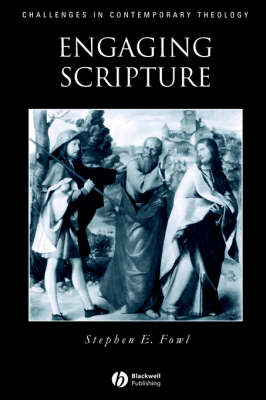Challenges in Contemporary Theology
1 total work
'Some books give new answers to old questions. Here is the book that changes the questions themselves. We are therefore extremely fortunate to have Fowl's "Engaging Scripture", for this is a book that challenges the presumptions that created the "problem" of the New Testament and its relationship to theology. Fowl's reading of "Ephesians" on stealing is worth the price of the book in itself. One cannot help but think this book will standout as the mark of a new beginning' - Stanley Hauerwas, Gilbert T. Rowe, Professor of Theological Ethics, Duke University, North Carolina.The Original Essay will be of interest to all those concerned with the inter-relationships between theological and the Bible. It may be used as a complement to Fowl's collection of classic and contemporary readings, "The Theological Interpretation of Scripture" (Blackwell Publishers, 1997). "Engaging Scripture" proposes that Christians must read scripture theologically, redressing the recent domination of professional scholarship in this area by historical-criticism.
Drawing on the best interpretive traditions of the past, Fowl develops, argues for and displays a new model for the theological interpretation of scripture.This interpretive framework should enable Christians, and particularly Christian theologians, to interpret scripture in a way that helps them to live and worship faithfully. Theological and theoretical questions are illustrated by reference to particular Christian convictions, practices, and concerns in the US and Britain, and by engaging scriptural passages. These serve as examples of the sort of interpretation Fowl is advocating. In summary, the book looks towards bridging the chasm that arose between biblical studies and theological study following the rise of modernity.
Drawing on the best interpretive traditions of the past, Fowl develops, argues for and displays a new model for the theological interpretation of scripture.This interpretive framework should enable Christians, and particularly Christian theologians, to interpret scripture in a way that helps them to live and worship faithfully. Theological and theoretical questions are illustrated by reference to particular Christian convictions, practices, and concerns in the US and Britain, and by engaging scriptural passages. These serve as examples of the sort of interpretation Fowl is advocating. In summary, the book looks towards bridging the chasm that arose between biblical studies and theological study following the rise of modernity.
